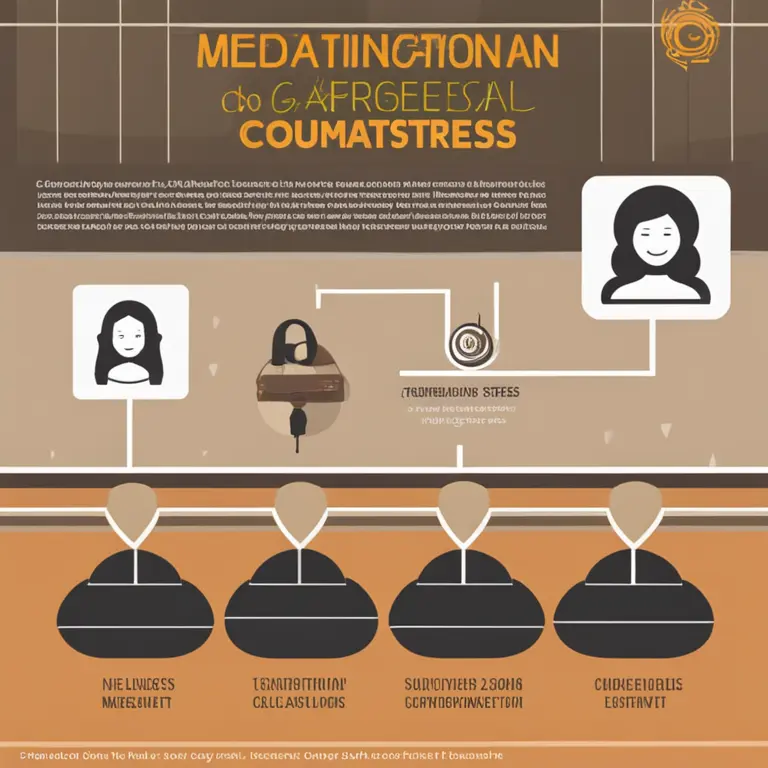
Meditation: Your Natural Remedy for Stress Relief
Discover how the ancient practice of meditation can be your ally against modern stress, offering a tranquil refuge for the mind and body.
article by Hina Kurosawa
Introduction to Stress and Meditation
Stress has become an inescapable part of modern life, affecting our mental and physical health in numerous ways. As we grapple with the demands of the 21st century, finding effective stress management techniques is more crucial than ever. Meditation emerges not only as a timeless practice but adapts easily to our current landscape, offering a serene harbor in the storm of daily pressures. This piece explores how incorporating meditation into your routine can significantly alleviate stress, contributing to a more balanced and healthy lifestyle.

The Science behind Meditation for Stress Relief
The effectiveness of meditation in combatting stress isn't merely anecdotal. Recent studies, including those from notable institutions, confirm that regular meditation can significantly decrease cortisol levels, the body's primary stress hormone. Furthermore, neuroscientific findings pinpoint changes in the brain's structure—specifically in the amygdala, which is responsible for stress responses—after consistent meditation practice. These transformations lead to reduced reactivity, promoting a state of calmness and improved stress management.

Meditation Techniques to Combat Stress
There are various forms of meditation to explore, each potentially serving as an antidote to stress. Mindfulness meditation encourages us to observe our thoughts non-judgmentally, aiding in detaching from stress-inducing rumination. Guided imagery involves visualizing calming scenarios, leaning on our mind's power to evoke peacefulness. Moreover, some practitioners may find solace in movement-based meditations, such as tai chi or yoga, which sync physical postures and controlled breathing to stabilize the mind.

Starting a Meditation Routine
Contrary to some beliefs, you don't require hours of silence or a perfectly serene environment to begin meditating. Start with just a few minutes each day, finding a quiet place where you can sit comfortably without interruptions. Focused breathing is an excellent anchor for beginners, where one pays close attention to the inhalation and exhalation, bringing the mind back to the breath when it wanders. As your practice deepens, you may gradually extend the duration of your sessions.

Meditation and Lifestyle Balance
The influence of meditation extends beyond the periods of practice; it intertwines with our overall lifestyle choices. Regular meditators often report improved sleep patterns, heightened self-awareness, and enhanced emotional health. These benefits are crucial, as they contribute to a more balanced daily routine and increased resilience to stress. Adopting meditation is akin to cultivating a personal refuge that nourishes tranquility and wellness amidst life's inevitable chaos.
Overcoming Obstacles in Meditation
Embracing meditation doesn't come without its challenges. Novices might confront mental restlessness or struggle to maintain consistency. It's essential to recognize that such hurdles are a natural part of the learning process. Patience, coupled with perseverance, is key. Utilize mobile applications designed for stress-relief meditation or enroll in local classes to provide structure and motivation for your practice. With time, the act of meditating will become an integral and effortless segment of your stress management toolkit.
Published: 1/14/2024
Modified: 1/15/2024
More predictions
Come back here soon to learn more about yourself and your future


Mindfulness & Meditation: A Guide for High Schoolers
Discover the benefits of mindfulness meditation tailored for the hectic life of high school students, and learn simple strategies to incorporate it into the daily routine.


Healing Through Mindfulness: Meditation & Trauma Recovery
Mindfulness meditation offers a powerful tool for individuals seeking solace and healing from traumatic experiences. Discover how this practice can aid in the journey towards inner peace.


Easing Loneliness with Meditation
Discover how mindfulness meditation can provide solace and connection to mitigate feelings of loneliness, enhancing emotional and mental well-being.